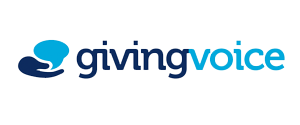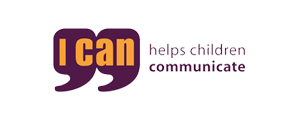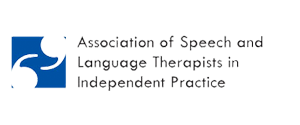Social communication difficulties
Social communication difficulties are also known as pragmatic difficulties. Social communication refers to the social use of language. It is successfully interacting with others in an appropriate manner that follows the rules of conversation, social norms and unwritten rules in society regarding interactions in different environments. Social communication difficulties arise when a child is unaware of the appropriate use of and interpretation of both verbal and non-verbal language in social situations.
Our speech and language therapists can observe and assess your child’s social communication abilities in various settings and situations to identify your child’s strengths and difficulties. Using the information from the assessment process, our speech and language therapists will work with you, your child, their school and other professionals involved to create a therapy programme unique to your child abilities and needs.
Speech and language therapy can increase your child’s interaction with a variety of conversational partners across different social settings in a socially appropriate manner.
What is social communication?
Social communication refers to using language socially, it is made up of the following aspects:
- Social interaction
- Social cognition
- Pragmatics
- Receptive and expressive abilities
Social interaction
Social interaction refers to the behaviour of individuals who are partaking in a joint activity. In regards to communication, social interaction refers to the child’s communicative behaviours, for example:
- The child’s speech style dependent on the context.
- Cultural influences on the child’s communicative interaction.
- Gender differences that may impact the child’s communication.
- The impact of one language on another (for children who are bilingual or multilingual).
- Code switching (swapping between two languages).
- Following rules of linguistic politeness according to social norms.
- Social reasoning ability.
- Peer related social competence.
- Conflict resolution ability.
- Ability to be flexible in power relationships.
Social interaction is important in social communication as it creates a foundation for a child to communicate with others. Before a child can communicate with another person, they must have the ability to approach other people. For the communication process to be successful the child must know and be able to carry out the social rules for communication.
Children who have social communication difficulties may struggle in the area of social interaction. They may struggle with one or more parts of social interaction which can cause a lack of or unsuccessful communication.
Our speech and language therapists can reduce difficulties with social interaction from affecting a child’s communicative ability by explaining the communication process. As well as using therapy exercises to demonstrate appropriate speech styles, social behaviours and increase vocabulary.
Social cognition
Social cognition is the term used to describe the cognitive processes required in interaction. To be able to communicate with another person and have a successful conversation you need to carry out different thought processes. For interaction you need to have the following cognitive abilities:
Theory of mind
The ability to associate emotions, beliefs, perceptions and intentions with yourself and others in order to understand and predict behaviour. It is also includes the ability to separate the real world to your mental representations of the world.
Emotional competence
This is the ability to regulate one's emotions, to understand emotions and the ability to express the right emotions depending on the environment and conversational partner.
Executive functioning
This includes abilities such as organising, problem solving, attention, reasoning and planning.
Joint attention
This is the ability to share a common focus e.g. a topic of conversation or a play activity, with another person. To be able to do this attention must be gained, maintained and you must possess the ability to shift your attention.
Inference
This is the ability to make a conclusion about something using information you already have based on known facts, evidence and experiences.
Presupposition
To assume something about what has been said from the information received in a conversation which is believed to be true.
Social cognition is significant in social communication as it is needed to understand why a conversational partner is responding in a certain way, to be able to empathise in conversation or to change our behaviour and emotions to match the setting and circumstance. It is also important as it allows you to make assumptions about what is being said in order to respond and maintain a conversation.
Children who struggle with social cognition in communication may take what is being said for face value, they may not understand factors like sarcasm or idioms in conversation. Difficulty with social cognition can lead to a child not understanding another person’s point of view, emotion or behaviours. This can lead to the child appearing as unsympathetic, rude or ignorant. If a child struggles to infer what is being said they may struggle with resolving a conversational breakdown.
Our speech and language therapists can help a child who is struggling with social cognition in communication by helping the child to recognise different emotions, increasing shared attention and organising a conversation using different therapy techniques.
Pragmatics
Pragmatics refers to the social use of language. This is how we choose to use language in a conversation or situation to express meaning, feelings and emotion. This can be done through both verbal and non-verbal communication. Our choice of words, style of conversation and behaviour in an interaction is governed by the social context and the unspoken social rules that are present in communication.
Verbal communication
- Use of language e.g. requesting, responding, commenting, demanding, refusing, objecting, warning, questioning.
- Prosody - Prosody in speech refers to rhythm, stress, pitch and intonation pattern. It helps to reflect the emotion of the speaker.
- Grice maxims of conversation - this relates to conversational cooperation through the use of four maxims:
- Maxim of quantity - giving the most helpful amount of information.
- Maxim of quality -giving the most correct information as possible.
- Maxim of relation - being relevant to the topic in conversation.
- Maxim of manner - being clear, brief and using order to arrange what you are saying.
- Style of discourse e.g. formal , informal, narrative.
- Topic maintenance.
- Conversational breakdown and repair.
- Knowledge of what is being said.
Non-verbal communication
- Body language e.g. the way somebody is stood.
- Gestures:
- Deictic gestures - gestures that indicate e.g. pointing.
- Conventional gesturing - nodding or waving your hand.
- Symbolic gestures - representations of concrete objects e.g. using your hand to depict a phone.
- Emphatic gestures - meaningless gestures that accompany everyday speech.
- Facial expression e.g. smile or grimace.
- Eye contact.
- Challenging behaviour as a form of communication.
- Spacing between conversational partners.
Pragmatics are important in social communication as they help the listener further understand what is being said. This is done by providing structure to the conversation as well as behaviour that matches what is being said by the speaker. This helps the listener to believe what is being said to them.
A child who struggles with pragmatics may find it difficult to stay on topic in a conversation or they may struggle to tell a story in an organised manner. Other difficulties children may present with include making or maintaining eye contact during a conversation or standing too close to the person they are speaking to.
Our speech and language therapists help children who have pragmatic difficulties by providing therapy to work on each individual difficulty. Therapy can include learning the structures of storytelling, or understanding the different uses of language, as well as demonstrating the appropriate non-verbal communication needed in different conversations.
Language skills
Language skills are needed to successfully communicate. It refers to a person’s ability to understand, speak, read and write. Language skills are made up of many different aspects, including:
- Receptive language skills - a person’s ability to understand spoken and written language.
- Expressive language skills - a person’s ability express themselves using spoken and written language.
- Phonological skills - the ability to recognise, differentiate and produce the different sounds needed in words.
- Morphology - refers to the different word forms e.g. singular, plural, suffixes, prefixes.
- Syntax - refers to a set of rules and principles that regulate the structure of sentences and utterances. It governs the order of a person’s words in an utterance.
- Semantics - understanding the meanings of words, classifying similar words together.
Language skills are important in social communication as they allow children to understand what is being said to them as well as reply and express themselves in a way that is intelligible, clear in structure and uses the correct words and word forms.
Difficulties with language skills can impact social communication in different ways. For example children who have receptive language difficulties may find it difficult to understand what is being said to them. A child who struggles with syntax may find it difficult to be understood by others as they don’t have clear structure when speaking. Their words may sound jumbled up to others.
Our speech and language therapists help children who have difficulties with language skills by providing them with therapy exercises that work on improving their difficulties. For a child who struggles with receptive language, our speech and language therapists will provide therapy that works on increasing the child’s understanding. This can increase a child’s social communication as they will be able to partake in more conversations as they understand more of what is being said.
Speech and language therapy assessments for social communication difficulties
Our speech and language therapists diagnose social communication difficulties in children using a variety of assessment tools.
A speech and language therapy assessment will include all aspects of social communication including, social interaction, social cognition, pragmatic skills (verbal and non-verbal) as well as receptive and expressive language abilities.
The outcome of the assessment will demonstrate:
- Identification of specific social communication difficulties.
- Identification of the impact the social communication difficulties has on the child’s social, emotional and educational development.
- Identification of strengths and needs in relation to language and social communication abilities.
- Recognition of the impact of social communication difficulties on the child’s activity and participation in school, home and social environments.
Assessments available for social communication difficulties:
Speech and language therapy treatment for social communication difficulties
Speech and language therapy can increase a child’s social communication abilities across different settings and communication partners.
Suitable therapy options for children with social communication difficulties:
- Social communication therapy
- Social communication group
- Advice, support and training for parents, carers, other professionals and family.
Benefits of speech and language therapy
Speech and language therapy can be of great advantage for children with social communication difficulties, it can improve children’s ability to successfully communicate with others through increasing awareness and skills. Benefits of speech and language therapy for social communication include:
- Prevention of:
- Failure in education.
- Social dysfunction.
- Behavioural dysfunction.
- Emotional dysfunction.
- Increased social communication skills.
- Increased appropriate interactions with parents, siblings, peers and other conversation partners.
- Increased understanding of others intentions and interactions.
- Increased activity and participation in school, home and other social settings.
Our speech and language therapists can provide your child with individual or group therapy working on pragmatics, social skills and social norms in communication to increase their social communication with various communication partners across different social settings. Our speech and language therapists can provide an individual therapy programme for children who have social communication difficulties that incorporates their learning styles, social settings, cultural background and communication partners.
Conditions associated with social communication difficulties that SLT for Kids commonly work with
Social communication difficulties may occur for many different reasons. Sometimes it is a distinct diagnosis other times it is associated with the following conditions:
- Autism spectrum disorder
- High-functioning autism
- Learning disability
- Developmental delay
- Specific language impairment
- Acquired head / brain injury
- Stroke
Social communication difficulties in children can be diagnosing features in certain conditions such as autism spectrum disorder (ASD). Our speech and language therapists can assess your child’s abilities and help them to learn the social skills, pragmatics and unwritten social rules needed for social communication.
Summary
If your child is struggling with any aspects of social communication and it is impacting upon their home and school life, our speech and language therapists provide an assessment of their skills. Our speech and language therapists can use this information to create an individualised therapy programme to increase your child’s communication skills and interaction with others.
What to do next
If you think that your child has poor social communication skills, or their school has informed you on this difficulty then please email office@sltforkids.co.uk or call 0330 088 2298. Our speech and language therapists offer an in-depth assessment and ongoing therapy for social communication difficulties.








